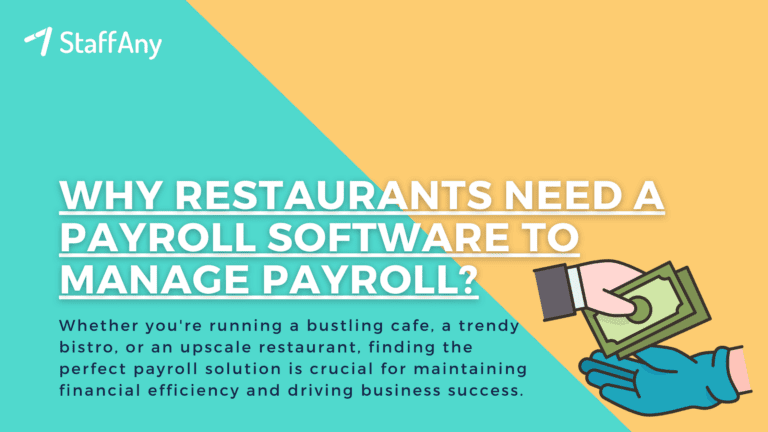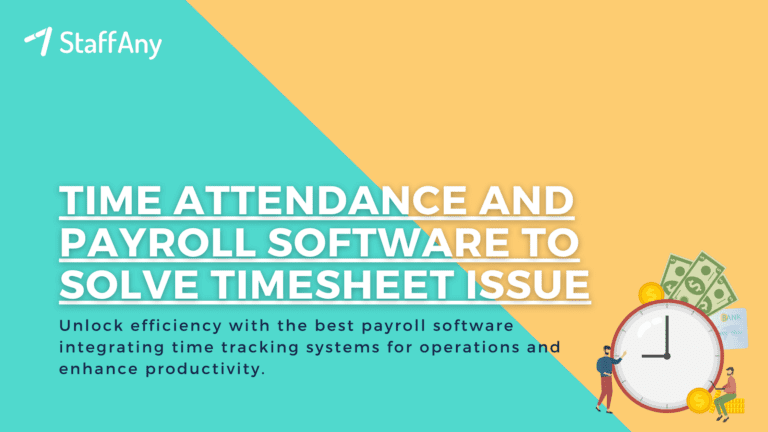How to get a business licence in Malaysia is a crucial question for anyone looking to venture into the vibrant and diverse business landscape of this Southeast Asian nation. Starting a business here, including F&B business, can be an exciting and potentially lucrative endeavour, but it comes with legal and administrative requirements.
In this comprehensive guide, we will explore what a business licence entails, the step-by-step process of getting a business licence in Malaysia, and some valuable tips and tricks for starting a new F&B business. Let’s get started!
What Is a Business Licence?
A business licence, often referred to as a business permit or business registration, is a legal document issued by government authorities that grants permission to an individual or entity to conduct specific commercial activities within a particular region or jurisdiction.
This licence officially recognises that the business complies with local, regional, and national regulations, ensuring its operations are lawful and adhere to prescribed standards.
Read more: How to Set Up a Franchise Business in Malaysia: A Complete Guide
How to Get a Business Licence in Malaysia?
Obtaining a business licence in Malaysia is a structured process governed by the Registration of Businesses Act 1956 (ROBA 1956). To help you navigate this process, we’ve outlined the key steps and requirements to acquire a business licence in Malaysia:
1. Registration Timing
Under Section 5 of ROBA 1956, a business must be registered within 30 days from the date it commences operations. This registration is submitted to the Registrar/SSM.
2. Eligibility and Business Activities
The registered business must comply with the definitions in Section 2 (Business Interpretation) of ROBA 1956. It should not be involved in charity or welfare activities or any work specified in the Schedule (Section 2).
3. Ownership
The owner or partner must be a Malaysian citizen (MyKad) or a permanent resident (MyPR) at least 18 years old.
4. Geographical Scope
The business must operate within Peninsular Malaysia and the Federal Territory of Labuan.
5. Online Registration
Applicants can submit their registration application online through the Ezbiz portal (ezbiz.ssm.com.my). To do this, applicants must first register as an Ezbiz Online user. Detailed guidelines on user registration and new business registration are available.
6. Supporting Documents
When applying, you should attach/upload relevant supporting documents, which may include a copy of the partnership agreement (if applicable) and an agency permission/confirmation letter (if required for your business activity).
7. Business Names
Businesses can be registered under two main categories of business names:
- Trade Name: A business name created for commercial purposes (e.g., Indah Maju Construction, Restoran Seri Nelayan, Nirmala Trading & Services).
- Personal Name: A business name that matches the name stated on the identity card (e.g., Ali Bin Ahmad).
8. Compliance and Appropriateness
The type or activity of the registered business must be in alignment with the chosen business name and must not involve any illegal activities. It should also comply with federal security, public order, and moral principles.
9. Business Branches
If your business has branches, ensure they are not registered under the same address as the principal business location or any other branches.
10. Partnership Scenarios
There are two partnership scenarios in Malaysia based on which category it’s registered:
- Trade Name: Businesses registered under a trade name can be registered as either a Sole Proprietorship or a Partnership (not exceeding twenty people).
- Personal Name: Businesses registered under a personal name cannot be registered as partnerships.
11. Partnership Verification
In the case of a partnership, all partners will receive email notifications related to the new business registration. Partners must verify the business registration application on the Ezbiz Online portal. After verification by the partner, payment can be made and the application can be sent for processing.
12. Registration Fee
Fees for business registration vary according to the type of business and name used:
- RM 60 per year for Sole Proprietorship or Partnership using a Trade Name.
- RM 30 per year for a sole proprietorship using the owner’s name as stated on the identity card (Personal Name).
- RM 5 per year for every branch (if any).
- RM 10 for Business Information.
General Guidance
It’s important to note that conducting business without proper registration is an offence under the ROBA 1956, and the offender may be liable to a fine not exceeding RM 50,000 or imprisonment for up to two years or both.
Additionally, business owners are responsible for obtaining any necessary business licences, permits, or authorisation from local authorities or relevant agencies, even if the business is registered with SSM.
For further information and assistance, you can contact the SSM Contact Centre at 03-7721 4000 or via email at [email protected].
Read more: 9 Key Amendments of Malaysian Employment Act 1955
Starting a New Business: Tips and Tricks
Embarking on a new venture in the F&B industry is both exhilarating and challenging. Whether you’re a seasoned restaurateur or a first-time entrepreneur, the success of your F&B business hinges on careful planning and execution. Here are some valuable tips and tricks to guide you through the journey of establishing and running a successful F&B enterprise:
1. Thorough Market Research
Before opening the doors to your F&B establishment, conduct thorough market research. Understand the demographics of your target audience, analyse local competitors, and identify gaps in the market. This information will help you tailor your offerings to meet the specific needs and preferences of your customers.
2. Create a Unique Selling Proposition (USP)
In a competitive F&B landscape, having a distinctive offering is crucial. Develop a Unique Selling Proposition that sets your business apart from others. Whether it’s a signature dish, a unique dining experience, or exceptional customer service, a strong USP will attract and retain customers.
3. Focus on Quality Ingredients
The foundation of any successful F&B business is the quality of its ingredients. Establish relationships with reliable suppliers to ensure the freshness and consistency of your offerings. High-quality ingredients contribute to the overall dining experience and build customer trust.
4. Embrace Technology for Efficiency
Incorporate technology into your operations to enhance efficiency. Utilise point-of-sale systems for smooth transactions, implement online ordering platforms to reach a broader audience, and consider adopting reservation systems to streamline your booking process. Embracing technology can positively impact both customer experience and operational efficiency.
5. Strategic Marketing and Promotion
Develop a robust marketing strategy to create awareness and attract customers. Utilise social media platforms, create visually appealing content, and engage with your audience online. Consider special promotions, loyalty programs, and collaborations with influencers to boost your visibility and attract a loyal customer base.
6. Adaptability to Trends
Stay abreast of industry trends and be willing to adapt. The F&B landscape is dynamic, with trends evolving rapidly. Whether it’s incorporating plant-based options, embracing sustainable practices, or participating in themed events, staying current with trends can attract a diverse customer base.
7. Staff Training and Customer Service
Invest in staff training to ensure a high level of customer service. Friendly and knowledgeable staff contribute significantly to the overall dining experience. Prioritise customer satisfaction, and encourage your staff to build positive relationships with customers, fostering loyalty.
8. Maintain Cleanliness and Hygiene Standards
Cleanliness is paramount in the F&B industry. Establish and maintain stringent hygiene standards to create a safe and comfortable environment for your customers. Regular inspections and training ensure that your establishment complies with health and safety regulations.
9. Financial Management
Prudent financial management is essential for the sustainability of your F&B business. Create a detailed budget, monitor expenses, and track revenue. Be prepared for seasonal fluctuations and unexpected costs to ensure the financial health of your establishment.
10. Seek Customer Feedback and Adapt
Encourage customer feedback and use it constructively. Listen to customer reviews, both positive and negative, to understand areas for improvement. Adaptability is key to long-term success, and continuous improvement based on customer feedback enhances the overall quality of your offerings.
Read more: A Comprehensive Guide to Trademark Registration in Malaysia
Streamlining Business Operations with StaffAny’s Employee Scheduling Software
In the ever-evolving landscape of business, efficiency is paramount. As you navigate the intricate process of obtaining a business licence in Malaysia, consider how the right tools can revolutionise your operations.
StaffAny’s employee scheduling software offers a robust solution to complement your entrepreneurial journey. Beyond the regulatory requirements, managing your workforce effectively is crucial for the success of your business.
Let’s explore some key features of StaffAny’s employee scheduling software and understand how it can be the game-changer you need:
1. Real-Time Availabilities
Efficient team planning starts with accurate information. StaffAny’s user-friendly interface provides real-time leave and availability details, allowing you to plan your team roster seamlessly. With a first-come, first-served system, employees can prioritise their scheduling preferences based on real-time availability, ensuring a harmonious workflow.
2. Schedule with One-Click
In the fast-paced world of business, speed and accuracy are non-negotiable. Assigning staff to shift rosters becomes a breeze with StaffAny’s one-click scheduling feature. This employee scheduling app not only streamlines the process but also allows staff to submit time-off requests effortlessly, reducing scheduling errors and making the overall process more efficient.
3. Avoid Scheduling Mistakes
As you focus on obtaining the necessary business licences, managing staff schedules across different locations can be complex. StaffAny’s employee scheduling systems offer a consolidated view, highlighting any conflicting shifts and eliminating errors or overlaps in scheduling. This feature becomes particularly crucial as you strive for compliance and operational excellence.
In the pursuit of a business licence in Malaysia, the efficiency and accuracy offered by StaffAny’s employee scheduling software can be a strategic asset. By seamlessly integrating this solution into your business operations, you not only enhance your compliance with regulatory requirements but also optimise your workforce management, contributing to the overall success of your venture. Contact us to learn more!











